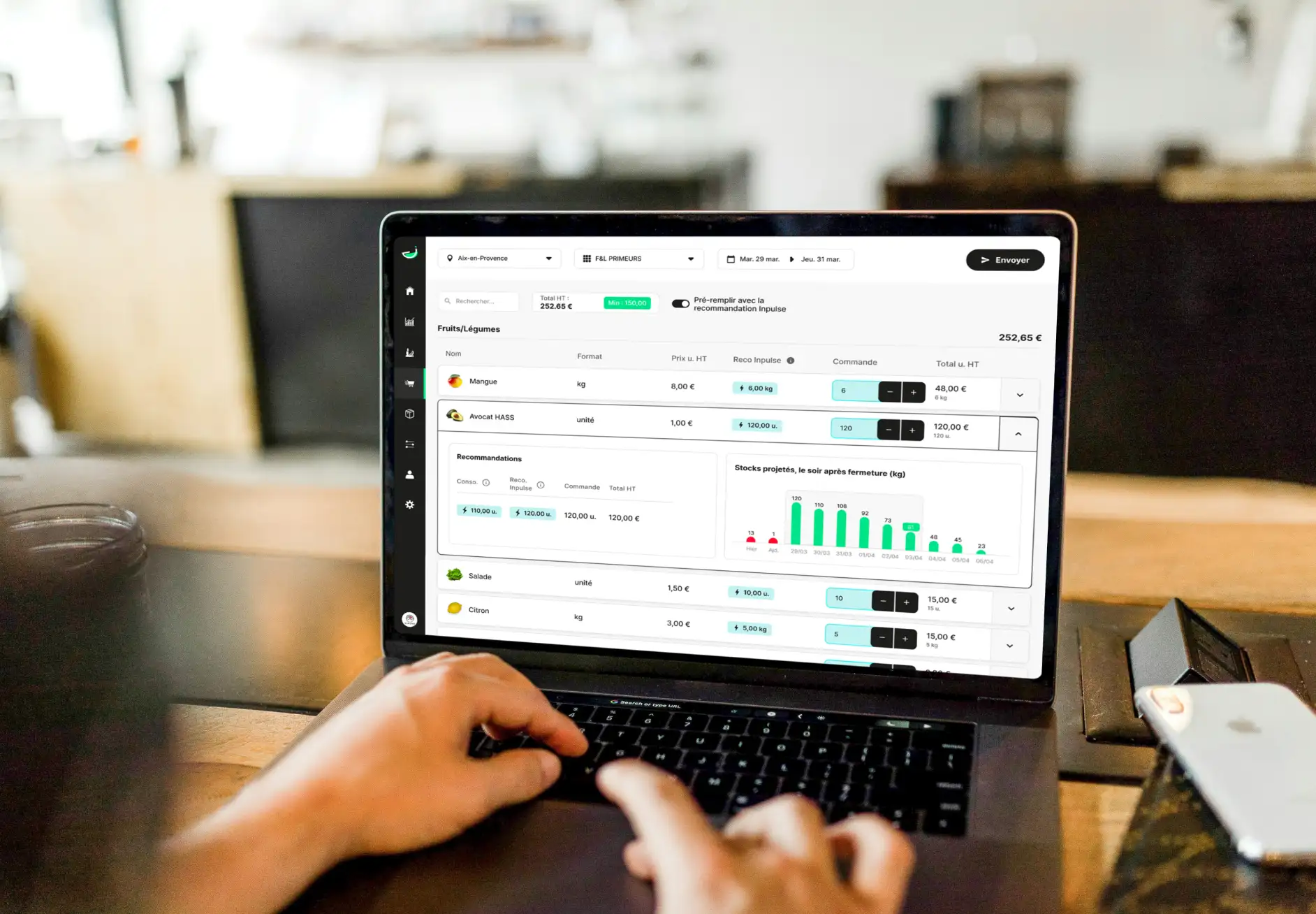
Discover how to establish accurate sales forecasts in the catering industry to optimise your stock and team management and cope with activity peaks.

Alexandre Leuliet
15
Sep 2025

In this article, we look at why forecasting is so important for multi-site restaurant groups, and how artificial intelligence provides reliable, actionable data to help restaurants, bakeries, and food chains plan ahead with confidence. AI is no longer just a tool — it’s becoming a profitability driver by factoring in variables managers can’t always anticipate.
Producing an accurate sales forecast is not simple, yet many operators still rely on gut feel. When forecasts are based solely on a manager’s experience and past sales data, external influences that affect performance are often overlooked.
When demand is higher than expected, operators risk running out of key ingredients or being under-staffed during spikes in on-site and delivery orders. On the other hand, overestimating demand ties up cash in unnecessary stock and leads to higher food waste — an issue that has become critical for the industry.
With staffing challenges and inflation putting pressure on costs, more UK operators are turning to digital solutions to optimise resources. Excel spreadsheets have long been the default, but they rely heavily on experience — and high staff turnover makes that knowledge difficult to retain. To grow and successfully operate multiple sites, scalable data-driven forecasting is essential.
Since 2018, Inpulse has been developing proprietary AI technology to forecast ingredient requirements by anticipating sales with a high degree of accuracy. Forecasts can be broken down by day, by product, and according to external influences such as:
Delivery in particular sees dramatic spikes linked to sporting fixtures. During major events like the Olympics, 60% of operators report an increase in online orders.*
As Guilhem Gilabert, director of Côté Sushi, explains: “If there’s a big match, we know exactly what supplier orders to place in advance.”
Stock control has become increasingly complex. Recipe changes to mitigate rising ingredient costs are more frequent, and suppliers are adjusting pricing more regularly. To place the right order, operators need to balance multiple parameters: forecasts, current stock levels, expiry dates, supplier conditions, and recipe requirements.
With Inpulse, AI automatically translates forecasts into ingredient requirements, dynamically adjusted against these changing variables. It calculates stock positions in real time by tracking deliveries, expected consumption, and losses, ensuring managers have exactly what they need — no more, no less.
Charles Drouhaut, co-founder and COO of DÉVOR, highlights how forecasting powers growth: “When we discovered Inpulse, sales forecasting was the missing piece to help new franchisees achieve profitability quickly. Without it, it would take around 8 months to experience peak and off-peak patterns and gain the necessary confidence. With Inpulse, a new site can reach target performance within 2 months.”
By making purchasing easier, managers save significant time on admin and can focus on service, quality and team leadership.
Forecasting isn’t only about stock. Many concepts, from bakeries preparing fresh bread and pastries each morning to sushi chains with self-service counters, need to plan daily production carefully. Getting this wrong leads quickly to food waste.
As Anthony Nicolas, network manager at L’Atelier Papilles, notes: “Inpulse’s artificial intelligence achieves 95% accuracy on forecast turnover and product mix.”
{{banner_inpulse}}
Planning shifts is as important as planning stock. Get it wrong and the impact is immediate: slower service, longer wait times, poor delivery ratings, and declining guest satisfaction.
Thanks to Inpulse, managers can use turnover forecasts to predict labour needs. By calculating expected productivity against sales, staffing levels can be set more precisely. This ratio varies by concept, but in fast casual restaurants it’s estimated that one team member is needed for every £600–£800 of turnover.
Inpulse integrates with leading workforce management systems to make sure these insights flow directly into staff rotas, helping operators stay agile.
*According to a study conducted by Deliveroo among 400 professionals in 2018.
© 2025 Inpulse. Tous droits réservés. Legal information
Politique de confidentialité.